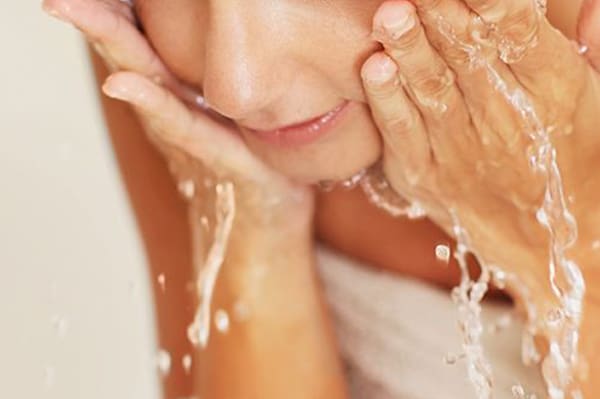Ever notice that when you travel your skin suffers from a host of problems, from rashes to acne? The reason may be from cleansing and washing with the local water. I learned this by doing my own investigation into a mini epidemic among a group of New Yorkers. Their fun and relaxing vacations were dashed by a dermatologic mess.
I first noticed this phenomenon on some of my high-profile fashion editor patients who attend Fashion Week in Milan. Once a year they head out to their posh convention, and way too often they return with some type of skin ailment. Each of the women were fastidious about their skin-care routines and traveled with all of the products and makeup they would normally use. Since those variables were constant, I suspected that it must be something they were encountering in Milan. I had a hunch that it had to do with the city water, so I got a sample and did some testing. I found that it was very high in calcium—what we call hard water.
Hard water, it turns out, exists in many locations. It alters our skin’s oil so that instead of flowing like a liquid, it becomes a bit thicker and waxier. This can lead to clogged pores, which causes many complexion problems ranging from blackheads and larger pimples to rosacea. Plus, calcium itself may irritate your skin, causing dry, scaly, pinkish patches. If you find your shampoo or soap doesn’t lather up and when you rinse you still feel a residue is left behind, you are most likely bathing with hard water.
Once I discovered the cause of my jet-setting patients’ skin ailments, it got me thinking that perhaps there were other things in water harming the skin. So I gathered water samples from around the country and a few international spots. It turns out there were variations of heavy metals in different city’s waters: iron, zinc, copper and magnesium. Heavy metals are free radicals that cause wrinkles, inflammation and redness.
To help fight this traveling skin sabotage, I took all I had gathered and creates a chelator complex for skincare products. Think of chelators like little Pac-Men that engulf calcium, acting like a water softener. They also absorb heavy metals and detoxify harmful elements in water. The reason I thought to incorporate them is that they have been used in the medical field as a toxicology treatment for lead poisoning in children. I simply took an existing treatment and formulated it to work topically, a first in the industry. It’s been a saving grace for those with sensitive skin—the skin type most vulnerable to hard water.
One of the questions I get asked frequently about using water filters to prevent skin problems. Those faucet filters are designed to take out particles like dirt and sand, but they aren’t going to catch subatomic molecules like calcium and heavy metals.
If you live in an area with hard water and can afford it, install a water softener system. If you can’t, cut back on the amount of shampoo, soap, and laundry detergent you use. These types of cleansers, if not thoroughly rinsed off, may over strip oil from your skin and hair. Equally bad is the residue that stays on the skin, which may cause irritation. I recommend a chelator spray for this, such as my C+Collagen Set & Refresh Mist.
How you do your laundry may also impact skin health due to hard water. This is especially true with towels—every time your wet skin comes in contact with that towel, it may transfer some of the detergent residue on to your skin because hard water made the rinse cycle deficient. I’ve found this ailment to be especially true for babies because of their delicate skin.
As my fashion-editor patients showed me, your skin ailments might be caused by the thing you least expect. Not all water is created equal, but by uncovering the cause and the solution, your skin won’t be swimming upstream.


Recent Comments